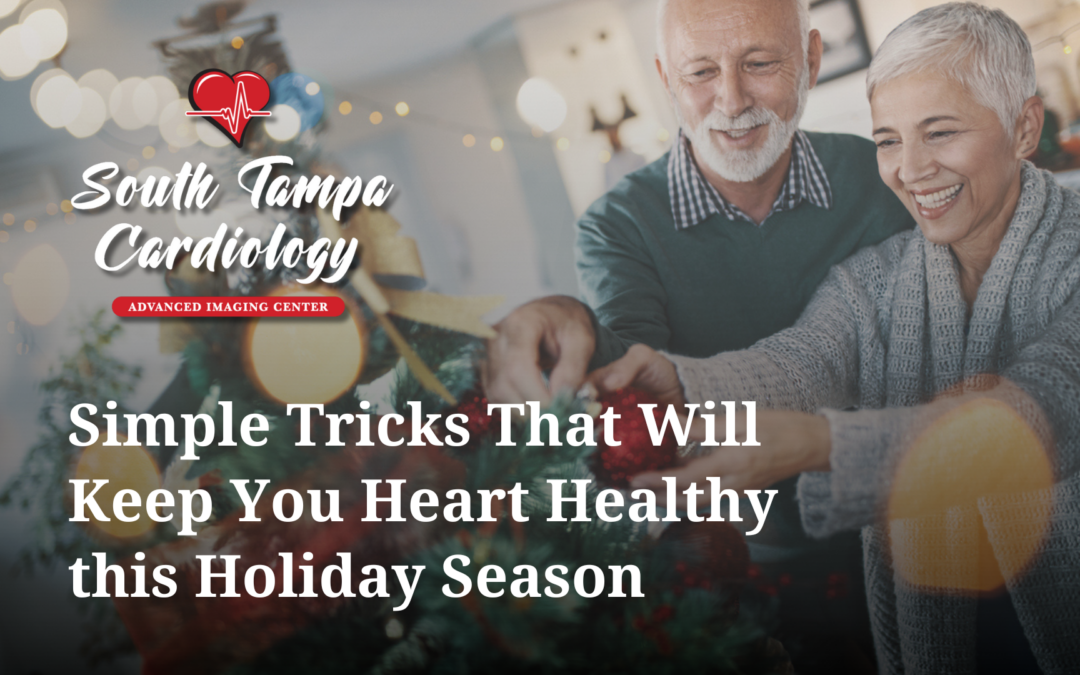The holiday season is a time for joy, reflection, and often, indulgence — and it can be easy to lose sight of heart health amidst the festivities. With the increase of rich foods and beverages, stress, and physical inactivity, heart issues can spike during this time. However, strategies exist designed to counteract these risks. Here’s what you need to know:
How Can You Balance Holiday Indulgence and Heart Health?
With an abundance of delicious foods and beverages constantly within arms reach, it’s easy to over indulgence during the holiday season. Outside of outright abstinence, which isn’t realistic for most people, portion control is the most effective strategy for making sure that holiday feasting doesn’t have negative consequences on your cardiovascular system.
Fortunately, heart-healthy options are increasingly included on holiday tables, so opt for lean proteins, whole grains, and a colorful variety of fruits and vegetables. Foods to avoid or to consume only in moderation include processed meats, high-sodium canned or processed items, anything with a high sugar content, and refined carbohydrates.
How Can You Stay Active During the Holidays?
Routines tend to go by the wayside when holiday obligations enter the picture, so be particularly mindful of sticking with your normal fitness routine as much as possible. Keep in mind that although it’s okay to miss a workout or two on an occasional basis, consistency is key when it comes to cardiovascular health, so treat your scheduled workouts like any other important appointment.
Whether you’re hosting houseguests for the holidays or are planning on playing the guest role in the home of family or friends, consider organizing one or two group fitness events, such as a long walk in the park or nearby countryside after a holiday feast.
What Are Some Ways to Manage Holiday Stress?
Holiday stress has a way of sneaking up on most people, and stress hormones, such as cortisol, can have a negative impact on heart health. Setting realistic expectations for standard holiday activities such as gift-giving, entertaining, and attending events helps dial down the stress factor. Remember that you don’t have to accept every invitation or attend every community event and that it’s okay to schedule time for relaxation and self-care.
To help manage blood pressure and heart rate, engage in stress-reducing activities such as deep-breathing, or yoga.
How Important is Sleep for a Healthy Heart?
Getting an adequate amount of sleep is essential for maintaining heart health. Holiday activities can disrupt sleep patterns, particularly if travel is involved, but try to stay on schedule as much as possible. Avoid alcohol and caffeine before bedtime — both of these can interfere with sleep quality. Keep in mind that sleep not only allows the body to heal, but it also plays an important role in regulating stress hormones.
Contact South Tampa Cardiology for a Comprehensive Evaluation
Board certified cardiologist Alberto Morales, MD listed in Tampa Magazine as one of the area’s top doctors, uses a preventive approach to cardiovascular disease. Techniques such as advanced imaging technology help detect heart disease when it’s in the emerging stages, resulting in more successful treatment outcomes. Call (813) 870-1747 or use the convenient online contact form to schedule an appointment.

